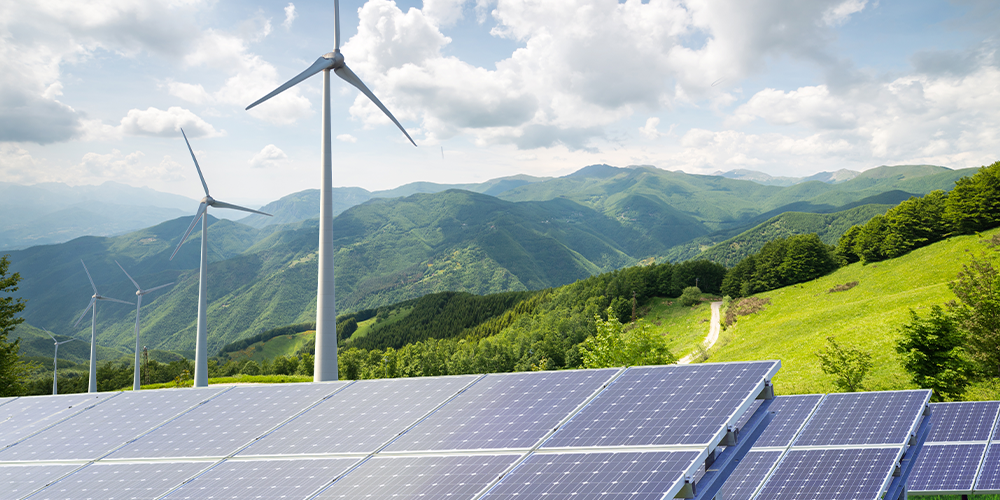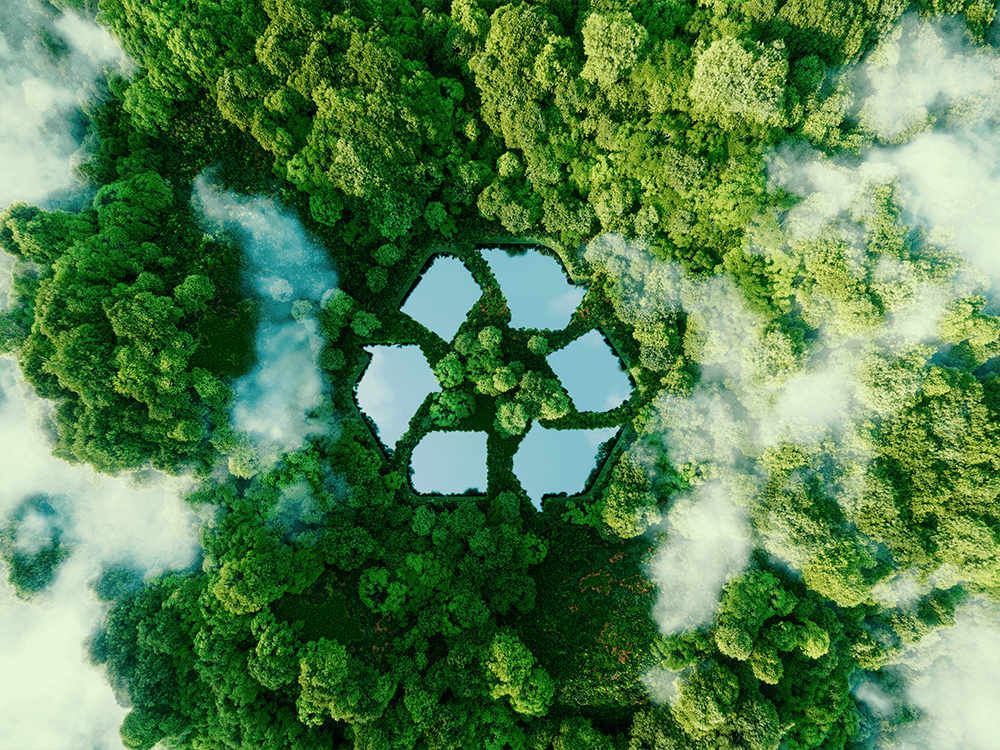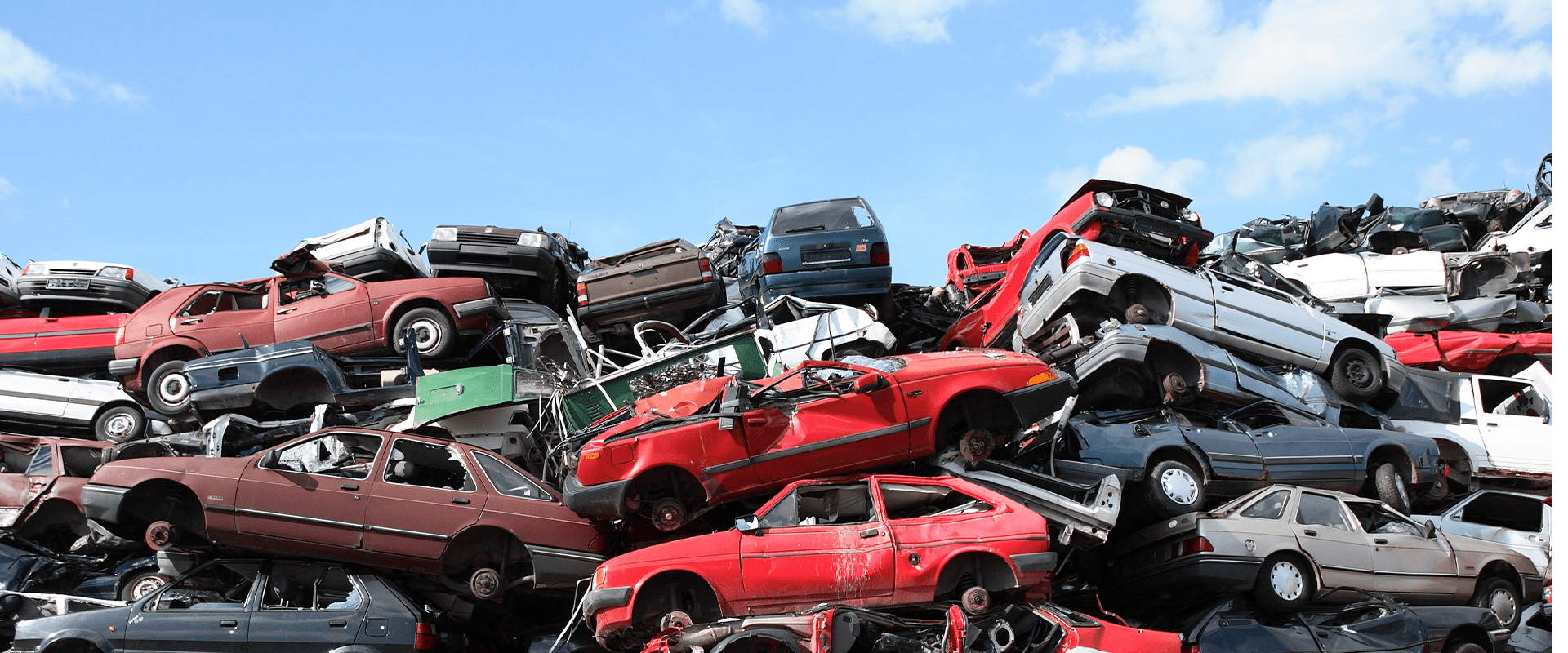Widening our scope
of environment
conservation
We are deeply committed to promoting environmental sustainability in all aspects of our business operations. Our goal is to ensure that resources are recycled and utilised in a responsible and efficient manner. We constantly monitor our environmental footprint to minimise our impact on the environment and actively pursue long-term sustainability initiatives through technological innovation in both our operations and products.
Science-Based Targets (SBT)
Science-based targets help companies to create operational frameworks based on a clear roadmap in line with the Paris Agreement to reduce GHG emissions. As per the Paris Agreement, governments, businesses and organisations worldwide have joined hands to limit global warming to well below 2°C above pre-industrial levels, aiming to limit warming to 1.5°C.
We have set our emission and carbon footprint reduction targets following the SBTi framework and are wholly committed to adopting sustainable business practices to strengthen the global fight against climate change.
75% by 2033
Direct (Scope 1) & Indirect (Scope 2)
44% by 2033
Scope 3

Climate Change
We are determined to align our operations with India’s commitment to achieve Net Zero emissions by 2070. As a responsible corporate, we are doing our bit to conserve the environment and our initiatives are focussed on the reduction of Greenhouse Gas (GHG) emissions.
We have also identified climate-related risks for our business, and actions are initiated to mitigate these risks.
Energy reduction projects and efficiency programmes
- Maximise the use of renewable energy
- Achieve science-based targets
- Accomplish carbon neutrality targets
- Tree plantation
Carbon Neutrality
Carbon neutrality refers to the achievement of net zero carbon dioxide emissions. It can be done in two ways by balancing carbon dioxide emissions through its removal, via carbon offsetting or by eliminating emissions altogether.
The offsetting of emissions can be made in one business/sector by reducing them somewhere else, i.e., through investments in renewable energy, energy efficiency or other clean, low-carbon technologies.
This is a crucial step towards effectively controlling our carbon emissions, and we are committed to finding more opportunities for energy savings and reduced GHG emissions.
We are undertaking several projects to cut down on our energy use and boost the use of renewable energy sources, and we have chalked out a roadmap for achieving carbon neutrality.
Create a Better Future

MINIMISE
Energy Use & Switch to Cleaner Fuels

GENERATE
Renewable Energy

PURCHASE
Renewable Energy Credits & Carbon Credits
Energy Management
| Years | FY 2021-22 | FY 2022-23 | % Change |
|---|---|---|---|
| Tonnes of Production | 2,96,617 | 5,12,610 | 73% |
| Total Energy (GJ) | 32,684 | 49,630 | 52% |
| Specific Energy | 0.110 | 0.097 | (12%) |
| RE Consumption (GJ) | 2,442 | 1,922 | (21%) |
| Share of RE | 7% | 4% | (48%) |

Water Consumption and Conservation
Water is an essential life-giving resource and we take proactive steps to control its consumption by avoiding unnecessary wastage. Recycling forms an important step in our wastewater management strategy. Some of our initiatives include reusing wastewater by treating it in Bio Sewage Treatment Plants (Bio STP), rainwater harvesting, drip irrigation and arresting leakages.
Water Data
| Years | FY 2021-22 | FY 2022-23 | % Change |
|---|---|---|---|
| Total Water | 44,978 | 47,387 | 5% |
| Water Recycled and Reused | 2,913 | 3,065 | 5% |
| % Water Recycled | 6% | 6% | 0% |


Operational Eco-efficiency
Zero Waste
Landfill diversion has become an extremely important part of environmental stewardship, owing to the decreasing landfill space. With our ‘Zero Waste to Landfill’ (ZWL) philosophy, we aim to reduce our landfill usage significantly, with at least 99% of our waste being diverted from landfills. By exploring alternative solutions of disposal or further use, the initiative helps us turn waste into valuable resources. Additionally, diverting waste from landfill and maximising its potential helps our businesses to cut costs and increase process efficiency. Through conservation efforts and the reuse of raw materials, the Zero Waste to Landfill initiative will not only improve manufacturing process efficiency but also minimise its negative environmental impact.
MAL Nashik is one of the first steel service centre to achieve Zero Waste to Landfill and continues to be recertified for the second consecutive year. Our target is to have all our plants certified for ZWL.
Decarbonising the Auto Industry to Create a Circular Economy
Aligned with the global push towards de-Decarbonisation and circular economy, we set up CERO (Mahindra MSTC Recycling Private Limited) as a joint venture with MSTC, a Government of India enterprise. CERO is India’s first Government-authorised vehicle recycler.
We started CERO to recycle end-of-life vehicles (ELVs) in an eco-friendly and organised manner. We have set two clear goals - making the roads of India cleaner and safer and reducing India’s reliance on scrap steel imports. The company operates under the brand name ‘CERO’, which is Spanish for ‘zero’, as it has a zero-tolerance policy towards ‘pollution’ during the recycling of vehicles, untreated discharge, and unsafe and unethical procedures. With this objective, the company has set up a presence at 41 locations across India to collect & recycle ELVs.
The automated plants adhere to all environmental and legal requirements set forth by the State Pollution Control Boards (SPCBs) and the Central Pollution Control Board (CPCB) for the recycling of vehicles. These facilities use cutting-edge gear to depollute, disassemble, and scrap ELVs, while preventing any hazardous waste from leaking. ~70% of a car’s body is made of steel, which is returned to the melting furnaces and then transformed into secondary steel, thus replacing the imported scrap steel. 12,000+ end-of-life vehicles have been recycled by CERO to date, helping us save ~ 11,750 tonnes of CO 2.
We have also been able to pump ~ 8,000 tonnes of recycled steel back into the economy since our inception, preserving the following natural resources.
~13,500
Tonnes Iron Ore
~49,500
Tonnes Coal
~530
Tonnes Limestone
~24
Lakh Litres of Furnace Oil




